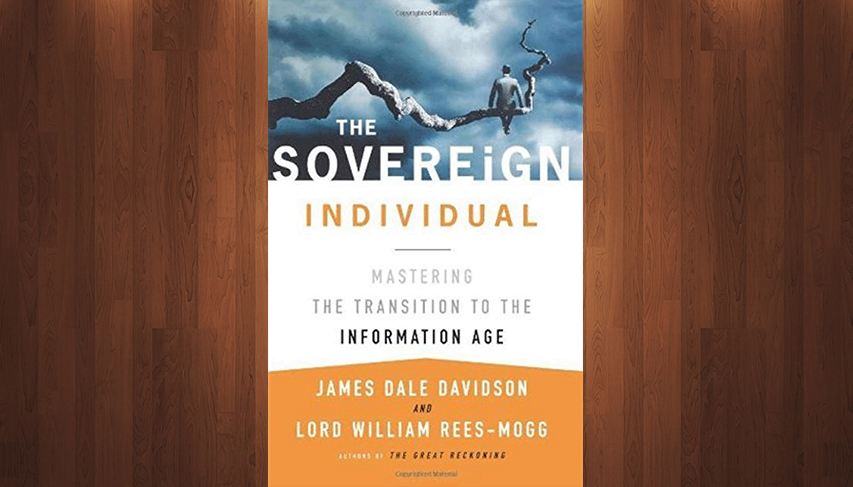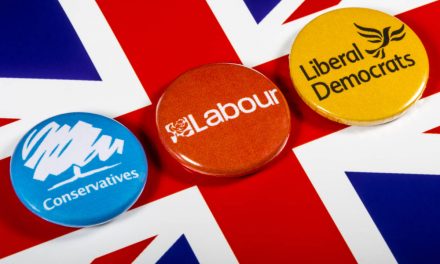Before I tell you about an important book I have recently read (my piece for this week’s New European,) let me first make sure you’re aware of this excellent article in the paper from BBC veteran Gavin Esler. It has had one of the biggest responses to any piece we have run. Alone, it justifies the cover price, and if you haven’t already subscribed to the paper, I suggest you do, here.
Meanwhile, here is my own offering this week.
It was a bit of an Ancient Mariner moment. There was something so intense about the voice chasing me down the platform at Marylebone station.
‘Mr Campbell, Mr Campbell,’ – usually it’s ‘Alastair’, so the more formal approach felt different, and as I couldn’t work out where the voice was coming from, I walked on. Then ‘Mr Campbell, Mr Campbell’ became louder, more intense. And then he was there, mid-heatwave a little out of breath.
My instincts, well-honed after years of meeting strangers in public places who ‘want a word,’ said he was friend not foe. I was right. He apologised for shouting, apologised for stopping me, said ‘thanks for everything you’re doing on Brexit,’ introduced me to his wife who was also anti-Brexit.
But then things went beyond the usual mutual Remoanering. He had a specific ask. He dipped into his backpack. ‘If I give you this book, do you promise me you will read it?’ he asked. ‘I promise you won’t regret it. More importantly, if you don’t read this book, you won’t fully understand why Brexit is happening.’ The intensity of the eye contact tipped him from being a random bloke on Platform 4, into a man who was meant to be there, carrying an important message. So I took the book. ‘You must read it,’ he said. ‘Even the first chapter. You will see straight away why it matters.’
I didn’t get his name. He told me he followed me on twitter, gave me his twitter name, but I had forgotten it by the time I got home. I’ve put out a message for him on twitter since. No reply. I hope he sees this. He gave me perhaps the most important book I had never heard of.
A few days later, I was on a train again, London to Aberdeen for the start of Burnley FC’s European tour. Did a bit of work. Had a nap. Then started the book. Marylebone’s Ancient Mariner was right. It was, in its own way, mesmerising.
First published in 1997, shortly before New Labour won the first of our three election victories, it is called The Sovereign Individual, and is subtitled Mastering the Transition to the Information Age.It is the product of very large brainpower, sweeps far and wide in historical research and current analysis, but its strength, especially reading it today, lies in the force of its predictions about the new millennium.
There is so much to digest in it that I intend to return to it next week, but for now I offer you a few highlights.
It is prefaced by a quote by Tom Stoppard, from Arcadia. ‘The future is disorder. A door like this has cracked open five or six times since we got up on our hind legs. It is the best possible time to be alive, when almost everything you thought you knew is wrong.’
The driving theme of this book is the information revolution, ‘the most sweeping in history’, liberating individuals at the expense of the 20thcentury nation-state. Indeed, the authors argue that microprocessing will subvert and destroy the nation state, creating new forms of social organisation in the process. It will be faster than any previous revolution, and not without pain.
The ‘Sovereign Individuals’ who will gain most from this liberation are ‘the brightest, most successful and ambitious’ among us, ‘those who can educate and motivate themselves …. Genius will be unleashed, freed from both the oppression of government and the drags of racial and ethnic prejudice.’
In this bright new world, government is but a drag on ambition and success, welfare something the rich are forced to fund for the less bright, successful and ambitious. Real success, they argue, will be measured not just by how many zeroes you can add to your net worth, but whether you can structure your affairs in a way that enables you to realise your full autonomy and independence. … autonomous of government, independent of communal responsibility. ‘Persons of even quite modest means will soar as the gravitational pull of politics on the global economy weakens. Unprecedented financial independence will be a reachable goal in your lifetime or that of your children.’
The Sovereign Individuals, this vision of wonder goes on, will compete and interact on terms that echo the relations among the gods in Greek myth. ‘The elusive Mount Olympus of the next Millennium will be in cyberspace.’ Some will be as rich as Bill Gates. The ‘cyberpoor’ will be those with an income of less than $200,000 a year. But here is what Sovereign Individuals can really like about cyberspace – there will be no cyberwelfare, no cybertaxes and no cybergovernment. ‘The good news is that politicians will no more be able to dominate, suppress and regulate the greater part of commerce in this new realm than the legislators of the ancient Greek city-states could have trimmed the beard of Zeus.’
Government is constantly equated with organised crime, Bill Clinton portrayed as something akin to a gangster, but this change, they argue, will force governments to do less, and do what they still do according to the values of the market. Governments will have to treat people like customers, ‘and less in a way that organised criminals treat the victims of a shakedown racket… First in scores, then in hundreds, and ultimately in the millions, individuals will escape the shackles of politics.’
As the modern nation-state ‘decomposes’, we are warned that ‘latter-day barbarians like the Russian mafia, other ethnic criminal gangs, drug lords, and renegade covert agencies will be laws unto themselves. ‘They already are.’
But Sovereign Individuals of the Information Age, like the ancient gods, will enjoy a kind of ‘diplomatic immunity’ from political decisions affecting mere mortals. Meanwhile, the capacity of nation-states to raise money for redistribution will collapse, and ‘the information aristocracy’ will move their wealth to wherever they are least troubled by politicians, whose capacity for taxing will fall by 50-70 percent.
Now we are at the heart of the argument. ‘Transactions on the Internet or the World Wide Web can be encrypted and will soon be almost impossible for tax collectors to capture. Tax-free money already compounds far faster offshore than onshore funds still subject to the high tax burden imposed by the twentieth-century nation-state. After the turn of the millennium, much of the world’s commerce will migrate into the new realm of cyberspace, a region where governments will have no more dominion than they exercise over the bottom of the sea or the outer planets. … Cyberspace is the ultimate offshore jurisdiction. An economy with no taxes. Bermuda in the sky with diamonds. When this greatest tax haven of them all is fully open for business, all funds will essentially be offshore funds at the discretion of their owner. The state has grown used to treating its taxpayers as a farmer treats his cows, keeping them in a field to be milked. Soon, the cows will have wings. Like an angry farmer, the state will no doubt take desperate measures at first to tether and hobble its escaping herd. It will employ covert and even violent means to restrict access to liberating technologies. Such expedients will work only temporarily, if at all. The twentieth-century nation-state, with all its pretensions, will starve to death as its tax revenues decline.’
Cybercurrencies will deliver monetary independence to individuals. Governments’ ability to control money by printing it will be transcended, the authors say – this is 1997 remember – by mathematical algorithms that have no physical existence…. ‘Only the poor will be victims of inflation.’
The book is written somewhat in the manner of a memo to investors. ‘A series of transition crises lies ahead … We expect it to be a time of great danger and great reward … Increasingly autonomous individuals and bankrupt, desperate governments will confront one another across a new divide. We expect to see a radical restructuring of the nature of sovereignty and the virtual death of politics before the transition is over. Instead of state domination and control of resources, you are destined to see the privatisation of almost all services governments now provide.’
Privatisation of services heralds ‘the ultimate form of privatisation – the sweeping denationalisation of the individual.’ The Sovereign Individual will not be the asset of any state, nor even a citizen, but a customer of competing jurisdictions. Once sovereignty is commercialised, people will choose their jurisdictions, much as they now choose their insurance companies or their religions. Jurisdictions that fail to deliver will face bankruptcy and liquidation, ‘just as incompetent commercial enterprises or failed religious congregations do.’
The authors’ hatred of welfare could not be clearer. It marks a welfare state up against out and out Communism, but very much down against ‘a genuine laissez-faire enclave like colonial Hong Kong.’
And how is this for a radical right-wing view of public services, in which the idea of co-operative pooling of resources for common good like roads and hospitals is clearly anathema? ‘If you went into a store to buy furniture, and the salespeople took your money but then proceeded to ignore your requests and consult others about how to spend your money, you would quite rightly be upset. You would not think it normal or justifiable if the employees of the store argued that you really did not deserve the furniture, and that it should be shipped instead to someone whom they found more worthy. The fact that something very like this happens in dealings with government shows how little control the “customers” actually have.’
Fear not though, oh Sovereign Individual, for all your transactions will occur not only over the Net, but outside the jurisdictions of nation-states. ‘Payment will be rendered in cybercurrency. Profits will be booked in cyberbanks. Investments will be made in cyberbrokages. Many transactions will not be subject to taxation…. Extraterritorial regulatory power will collapse…. Control over money will migrate from the halls of power to the global marketplace. Any individual or firm with access to cyberspace will be able to easily shift out of any currency that appears in danger of depreciation. Unlike today, there will be no necessity to deal in legal tender.’
There will, it is admitted, be ‘left-behinds,’ and they will become ‘increasingly jingoistic and unpleasant’ as the impact of information technology grows. There will be a backlash, and it could well turn violent. Social peace will be in jeopardy, especially in America and Europe. ‘The more psychopathic of these unhappy souls’ will strike out against anyone with more prosperity. The rich and immigrants will be most at risk. ‘A furious nationalist reaction will sweep the world,’ we are told. Part of this will be Luddite anti-technology rebellions.
‘One of the crucial challenges of the great transformation ahead will be maintaining order in the face of escalating violence, or alternatively escaping its brunt… It is difficult to guess at precisely what point the reaction will turn ugly. Our guess is that the recriminations will intensify when Western nations begin to unambiguously crack apart in the manner of the former Soviet Union.’
Again, though, Sovereign Individuals must not fear, because ‘every time a nation-state cracks up, it will facilitate further devolution and encourage the autonomy of Sovereign Individuals. We expect to see a significant multiplication of sovereign entities, as scores of enclaves and jurisdictions more akin to city-states emerge from the rubble of nations.’
The rubble of nations eh? In case we haven’t got the message over four hundred pages, we are given a final summarising reminder. ‘The argument of this book clearly informs the decision to redeploy your capital, if you have any. Citizenship is obsolete. To optimise your lifetime earnings and become a Sovereign Individual you will need to become a customer of a government or protection service rather than a citizen. Instead of paying whatever tax burden is imposed upon you by grasping politicians, you will be better positioned to prosper in the Information Age by freeing yourself to negotiate a private tax treaty that obliges you to pay no more for services of government than they are actually worth to you.’
There you go. Quite a vision. It is about as free market a view of the world as you could imagine, fiercely anti politics, with democracy itself called into question. So why, you are wondering, have I subjected you to this profoundly right-wing, anti-state, anti-welfare, anti-rules worldview, most of which fills me with fear and loathing? And why was my man at Marylebone so keen that I read this co-authored tome? Not because of the identity of the first author, American James Dale Davidson. But because of the second, Lord William Rees-Mogg, father of Jacob.
Of course Rees-Mogg Jr may not share every part of the Rees-Mogg Sr worldview. But we know from his own mouth that he shares much of it, and reading The Sovereign Individual, it is easy to see why he so loves Brexit, and the chaos and disorder, and opportunities for disaster capitalism and super-elitism, that it may provide. At least his father was honest in his depiction of that vision – the commercialisation of sovereignty, Bermuda in the sky with diamonds – as a good one for people of wealth who can put their assets wherever they like, so that taxes and inflation are for the ‘left-behinds’ not the Sovereign Individuals born to rule, but freed from all rules themselves. Lord Mogg would be very proud of his son’s role in trying to get Britain to the hardest Brexit of all, whatever the impact on the ‘left-behinds’ whose votes were just a necessary support on the journey, but whose needs will be forgotten as soon as the vision of Bermuda in the sky with diamonds is upon us.
Next week: More from Rees-Mogg Sr, and the most important book you’ve never read, currently at 1,081,101 on Amazon (founded 1994, not mentioned in the book, though the rise of a global tech giant wiping out national mail monopolies was.)






How extraordinary. And another warning that we must do everything we can to try to protect and foster serious journalism to make these sorts of connections. And also journalism in which reporters REMOVE themselves from the story unlike the current trend (BBC) for correspondents to be equated with celebrities, seeing how many pieces-to-camera they can fit in to 1’45”. Two of the most disturbing things I have heard in recent years: a BBC senior executive grinning and telling me ‘anyone with a mobile ‘phone can be a journalist nowadays’…and some Alt-Right nutter using the phrase ‘legacy – press’ as a way of suggesting that trolls on twitter are now the way of the future for democratic dialogue. Cheers Alastair.
I haven’t read The Sovereign Individual, but it sounds like a precursor to the Neoreaction (NRx) school of politics. Popular with right leaning figures such as Steve Bannon (apparently) and Peter Thiel. The philosophical underpinnings of NRx (provided by Lang 7 Moldbug) seems to be attracting a growing audience.
https://www.theatlantic.com/politics/archive/2017/02/behind-the-internets-dark-anti-democracy-movement/516243/
William Ree Mogg was about 70 years old when this book was written – from your blog, it reads like quite a revolutionary book. I seem to remember from around this time or perhaps later a Sunday Times article by William. He writing was affectionate about Ireland. It seemed, as Willian reminded the reader about the Britain who would become Saint Patrick, that Ireland was still ‘family’ all be it that Ireland was the prodigal son. For the reader, William fitted, what my Irish would see as the archetypal high Tory. A senior establishment figure above the rest. The sort who moved in the elite circles that protect Queen and country. Intelligent, reflective, with a memory to Britain’s history and the preservation of the Kingdom going forward. But the writing in this book attacks the very foundations of Britain’s interests in 1997. Could these really be the ideas of Williams mind? Or where they the ideas of a younger mind in his late twenties. Is it not more believeable that the son prevailed on the father to use his journalistic talents to craft this book. The ideas predicting crypto currencies and social media do not sound like the ideas William might have heard in his Club. If the proclamation set out in the book was actually Jacobs, then that is significant. It explains not just his absolute belief in the Brexit cause, but why he is fearless and so invested in defending it. Will this stop Brexit – NO. Brexit is going to happen and it maybe only the beginning of a philosophical idea, that may destroy much the west. It’s almost like a child playing at mountain stream. Lifting rocks and stones to create dams and force the water to a new course. The child’s play is great fun. But ‘ripping’ Britain from its central roll in the European Union is anything but. The mystery man and woman at the train station may have discovered ‘Guy Faulk’s’ plot.
I discussed a scenario such as this many years ago with my brother.
A race to the bottom started a while ago with the likes of the Rep. of Ireland setting a low Corporation Tax rate. The UK and lately the US have followed. Corporates are now no longer expected to pay their way, the bulk of taxation will fall on 80%-90% of a population stung by increasing consumption taxes.
You can already buy residency/citizenship in various countries via a ‘Golden Visa’ (if you have enough money) – including the UK.
As for cryptocurrency style living, I’m not so sure. When a state feels sufficiently intimidated, they will surely opt for Great Wall of China style firewalls. But only large cooperating blocs (China, North America, the EU) can survive the effect and bend the banking system to their will – which is another reason why BRexit is such a stupid idea. And if Bermuda or the Bahamas were to become a competing financial power, I’m certain some physical force from the US might change matters.
But I am minded to read the book!
Good piece… There is however a n interesting contradiction at the heart of Rees-Mogg Jr’s programme, one that his father would probably not approve of and that I think you could have brought forward more explicitly: in the process of turning himself into a Sovereign Individual, Jacob has forged an unholy alliance with the “furious nationalists” who, far from aspiring to some kind of technology-enabled libertarian utopia, want to resurrect the obsolete notion of a protectionist, autocratic, ethnically and culturally homogeneous state.
All a bit Ayn Rand – like
Alastair, I am aware of the book and have read part of it. I found it so extreme and so absurd in places that I felt it inadvisable for my mental health to continue. The extremes are so extreme that I felt compelled to consider Mogg pere to be a complete and utter fruitcake. This was not just an intellectual exercise, but a journey into a psychotic wasteland. It isn’t only April that is the cruelest month.
The fundamental assumptions about how the monetary system works is completely wrong and part of neoliberalism central. This is, politicly, the most extreme neoliberal book I have seen. Fortunately, there is an alternative, and it is MMT.
A lovely dystopian fairy story that no doubt had Jacob asking nanny for more well after he should’ve been in 1850’s dreamland but giving this pile of right wing fantasist nonsensical twaddle serious political discussion here or anywhere else for that matter when it was clearly intended for sci-fi geeks, rabid neocon nutters etc appears a bit self indulgent to me.
Weird. Reading about this, it doesn’t FEEL very right wing from the vantage point of 2018. The authors appear to be down on racial prejudice –
– genius will be unleashed, freed from both the oppression of government and the drags of racial and ethnic prejudice” – jingoism, and care little for the poor deplorables who are left behind. It’s like a FU to Trump voters.
And yet it’s Randian vision is right-wing. So I get it. It’s just a form of right-wing that feels dated and in retrospect has meshed fairly well with coastal, professional class progressives and their cosmopolitan attitudes.
One important thing is that William Rees ‘sounds cuddly like a pussy cat’ Mogg was at Oxford University with Maggie Thatcher, in the conservative association, so his influence might be a little grander than we can imagine.
Let’s also remember that Davidson and William Rees-Mogg predicted the collapse of the Soviet Union in their book The Great Reckoning in the early 1980s, but perhaps let’s look at this another way. Mogg seems to have been good at injecting self fulfilling prophesies at the right time – that book was published a few weeks before the collapse of the soviet union, was it a prophesy or an instruction manual?
He opened up a bookshop, he was editor of the times, these are ways of injecting ideas into the minds of people before Cambridge Analytica existed….this is the world we are moving into, the one where people can be affected more easily by people like this because minds have been opened to their self profiteering ideas
It is hardly any news then, that Rees Mogg (along with Johnson and Gove) have been in regular contact with Steve ‘I hate Jews, negros, women and Muslims’ Bannon on a regular basis. Same chaos philosophy. Can you explain, or is your blog the explanation, why May is in such thrall to these alt right kakistocrats?
Have you seen the other one by William Rees Mogg? ‘Blood in the Streets: Investment Profits in a World Gone Mad.’ https://www.amazon.co.uk/Blood-Streets-Investment-Profits-World/dp/067162735X/ref=sr_1_fkmr1_1?keywords=Blood+on+the+streets+william&qid=1552324548&s=gateway&sr=8-1-fkmr1
I think the main distinction everyone has to make is:
What do I want to happen vs what do I think WILL happen?
The trends the book predicted 20 years in advance are impressive and the technology to circumvent centralised power is increasing daily (read the history of the Cypherpunks and their impact on the digital age) – extrapolate this knowledge with facts we now have: echo Chambers and increasing polarisation in politics, off shore accounting, the crises of the central banks now heading towards persistent negative interest rate policies.
Brexit is just the start – next step will be Scotland’s independence and then the secession of City States.
Representative Industrial Age democracy has failed in the era of the Internet as political crises compound – people will seek more local comforting options. Best case this will be local smaller direct democracies like Swiss counties. Worst case you get fascist enclaves of luddite protectionism.
Just… Prepare yourself for these things and don’t get too engaged in nostalgia or what you WISH to happen.
Crypt_chameleon, you have put your finger on one of the many aspects of the book that seem to make it so pernicious.
It’s the idea that Lord William Rees-Mogg was just engaging in a disinterested, rational exercise of “prophesy-making”, putting aside “what do I WANT to happen”, and just thinking about “what I think WILL happen”. As if he had no self-interest or ideological bias involved in putting forward the vision of the future that he did. And those who oppose his vision, or certain aspects of it, are just engaging in “nostalgia and wishful thinking”.
The counter to that idea is to ask the question that Dominic Reid posed: “was it a prophesy or an instruction manual?”
Or as one reviewer on Amazon put it:
“””
This is not an exercise in prophetic, rational economics: it is an aristocrat’s charter. Aristocrats? Remember them? Remember how they looked down their noses at us and how we chopped their heads off? Those are the people this book is written to resurrect and flatter.
So don’t for one minute get taken in by the Sovereign Individual’s pretensions to prophecy. This book is a manifesto.
“””
If someone says something will happen, and then later it happens, does that mean that what he said had no role to play in making that thing happen?
What if William Rees-Mogg was also engaged in “wishful thinking” — but, he was in a position of enough power and influence to (at least help) make that wish become a reality?
It is dangerous to downplay the role that people’s intentions play in all this, on both sides of the table, so to speak. To make out that William Rees-Mogg was not, to any degree, engaging in an act of willing something, some reality, into being. That he was just predicting the natural, inevitable, only possible course of events, in a purely disinterested — or even, scientific — manner. And then, based on that wrong assumption, to make out that those who hold opposing views ought not to try to will something into being either — because that would just be futilely resisting the only possible course of events that had been established by this great, disinterested prophet/sage, Mystic Mogg.
If there is a case to be made for not trying to resist, it would be that the power differential is just too great. But we should acknowledge that it is a question of the balance of power, not some unalterable natural law. And we should continue to be attuned to that balance, for one day it may change. If we just throw our hands up and say, “Oh well, this course of events is inevitable”, this disempowers us — because we may (eventually) have more power than we imagine.
Our wishes, people’s wishes, do have power. Sometimes it may take a certain amount of time for the results of that power to show themselves, but that doesn’t mean that the power is not there. William Rees-Mogg’s wishes are a case in point. One of the wishes that William Rees-Mogg seems to express in the ideal of the “Sovereign Individual” is the wish to have individual power without communal responsibility. This is “wishful thinking” at its most dangerous — because it “might just come true” (if only for a later generation and not William himself). Or rather, it already has.
To end on a linguistic note — note that we commonly use the word “will” to denote the future tense, as in “what do I think WILL happen”. The way you used that phrase, it was to denote an impersonal process. But at root, to “will” something to happen is to intend for it to happen. The point is, that our ideas of what “will” happen often have more of an element of “willing” than we would like to admit.
The BBC documentary maker Adam Curtis foretold of this insanity in his series “The Trap”. The whole philosophy is based on work by the paranoid schizophrenic mathematician John Nash.
https://www.youtube.com/watch?v=8d1ibtOVImg
Also, the Youtube channel ‘Knowing Better’ has a video showing how the notion of the Sovereign Citizen has played out in the US:
https://www.youtube.com/watch?v=4_kbkQipgJo
Wow – powerful article – and it is worrying how the trends predicted 20 odd years ago are playing out.
One big enabler of this worrying trend is the fact that many major western countries are not true democracies (eg UK, US) and so allow a minority to make huge changes for everyone.
The fact remains that in UK and US there are still 60+% of the populations who do have centre/left leanings – in spite of years of right wing government propaganda and a very biased press – so this majority would find this book abhorrent.
Introducing true democracy via Proportional Representation in such countries would seriously reduce the power of the far right and so reduce the likelihood of this trend reaching its worst possible endpoints.
What will happen to the produce that AI produces? Will it simply be for these Lucy’s in the sky? How do they grow the cyber cash if not through transaction….or is it a vision of large country houses looking after themselves as no one is left on the outside. Sounds like a WEF conspiracy….no? Great estates with Prince Charles surveying his re-wilded fiefdom eating organic meat watching the last of the serfs plough his furrow.